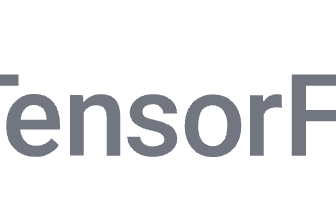Are you looking to revolutionize your manufacturing process?
Discover how Instrumental AI is transforming production lines with its cutting-edge defect detection, data integration, and predictive maintenance features. Our in-depth review explores the powerful benefits of this AI tool, comparing it to top alternatives and offering insights on its performance, ease of use, and value for money. Whether you’re aiming to reduce defects or boost efficiency, find out if Instrumental AI is the perfect fit for your manufacturing needs.
Dive into our comprehensive review and see how Instrumental AI can elevate your production to new heights!
Key features include
Features and Functionality
Instrumental AI stands out for its sophisticated AI-driven capabilities, making it a powerful tool. Key features include:
- Automated Defect Detection: Utilizes machine learning algorithms to identify and classify defects in real-time, reducing the need for manual inspection.
- Data Integration and Analysis: Aggregates data from various sources to provide comprehensive insights into production processes.
- Root Cause Analysis: Helps identify the underlying causes of defects and production inefficiencies, enabling targeted improvements.
- Customizable Dashboards: Offers user-friendly, customizable dashboards for monitoring key performance indicators (KPIs) and production metrics.
- Predictive Maintenance: Predicts equipment failures before they occur, allowing for proactive maintenance and minimizing downtime.
HighlightThese features work together to enhance the overall functionality of Instrumental AI, providing manufacturers with the tools needed to improve quality, efficiency, and productivity.
Specific examples include
Performance and Effectiveness
InsightInstrumental AI excels in its intended functions, delivering accurate and timely defect detection that significantly reduces production errors. For instance, a client in the electronics manufacturing industry reported a 30% reduction in defect rates within the first three months of using Instrumental AI. The platform’s ability to integrate and analyze data from multiple sources allows for comprehensive monitoring and improvement of production processes.
Weighing the balance
Pros and Cons
Pros
- Highly accurate defect detection and classification.
- Comprehensive data integration capabilities.
- User-friendly and customizable dashboards.
- Effective root cause analysis tools.
- Predictive maintenance feature reduces downtime.
Negatives
- Initial setup and integration can be complex and time-consuming.
- Requires a significant amount of data for optimal performance.
- Higher cost compared to some simpler alternatives.
Alternative tools
More Automation Options
Looking to explore more automation options? Discover alternative tools to Instrumental AI that can help streamline your operations and boost productivity.
Automation Anywhere is a powerful RPA (Robotic Process Automation) tool designed to automate repetitive tasks, particularly those involved in data entry and reconciliation.
Rossum Most functional
Rossum is an AI-driven platform designed to extract and validate data from documents such as invoices and purchase orders. It’s tailored to reduce manual data entry significantly and improve accuracy.
Hypatos Processing AI is a robust AI tool designed to automate domain-specific tasks in document processing.
The user’s journey
User Experience
Ease of Use:While Instrumental AI is highly functional, the initial setup and integration process can be challenging, particularly for companies with less experience in AI technologies. However, once implemented, the platform is intuitive, with user-friendly dashboards that facilitate easy monitoring and analysis.
Design and Aesthetics:The platform’s design is clean and professional, with an emphasis on functionality and ease of navigation. Customizable dashboards allow users to tailor their interface according to specific needs, enhancing the overall user experience.
Value for Money:Despite its higher cost, Instrumental AI offers substantial value for money, particularly for large-scale manufacturers. The improvements in efficiency, defect reduction, and predictive maintenance capabilities can lead to significant cost savings over time, justifying the initial investment.
Beyond the basics
Additional Information
Target Audience:Instrumental AI is best suited for medium to large-scale manufacturers looking to leverage AI for improving production processes, reducing defects, and enhancing overall efficiency.
Recommendations:I highly recommend Instrumental AI for manufacturers aiming to optimize their production lines and achieve higher quality standards. The platform’s robust features and proven effectiveness make it a valuable asset in any manufacturing environment. However, smaller companies with limited budgets might want to consider simpler, more affordable alternatives.
Additional Tips:To maximize the benefits of Instrumental AI, ensure that you have a comprehensive data collection strategy in place. The more data the platform has to analyze, the more accurate and beneficial its insights will be.
Final Verdict:For medium to large-scale manufacturers, Instrumental AI is a worthwhile investment that can lead to substantial improvements in production processes. While the initial setup may be challenging, the long-term benefits far outweigh the initial hurdles.
What users are saying
Instrumental AI Reviews
6.1
Total Score
For more detailed insights, user reviews, and additional information, visit the Instrumental AI website.












